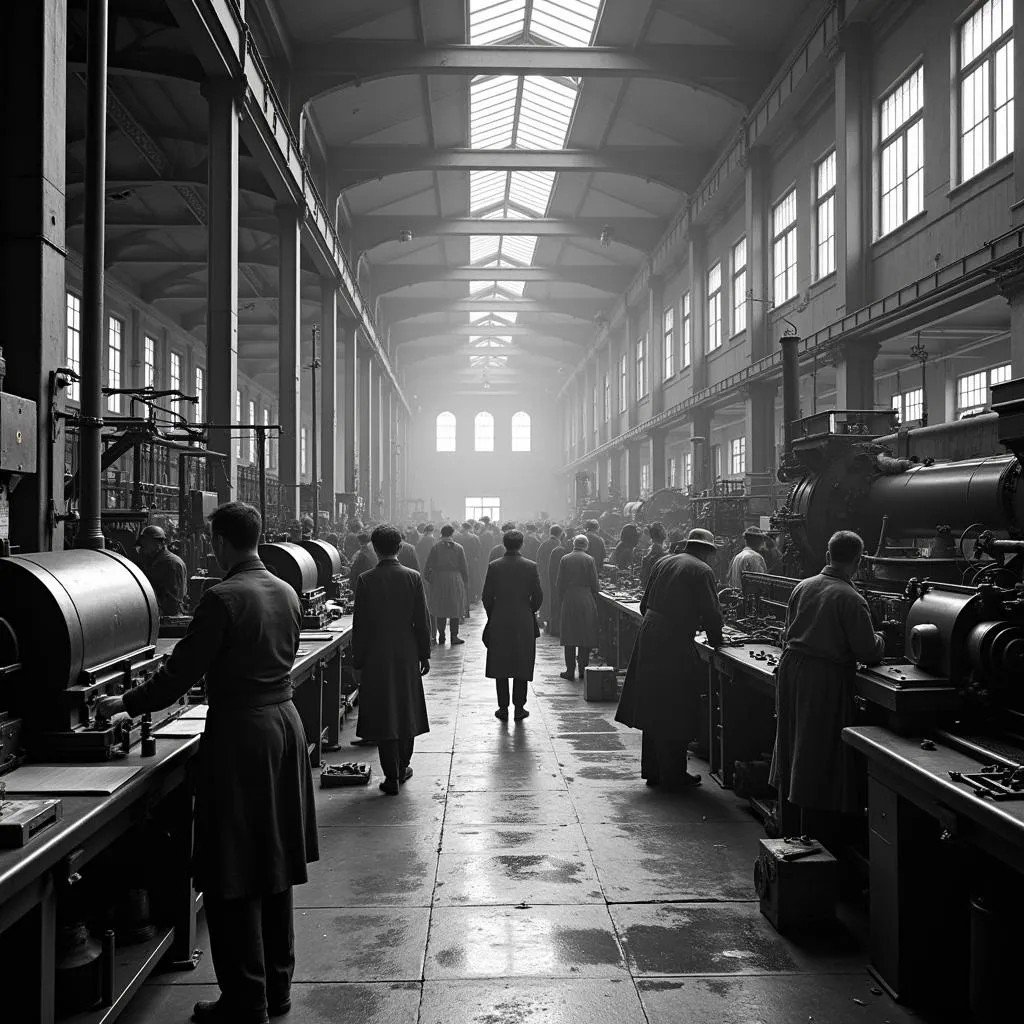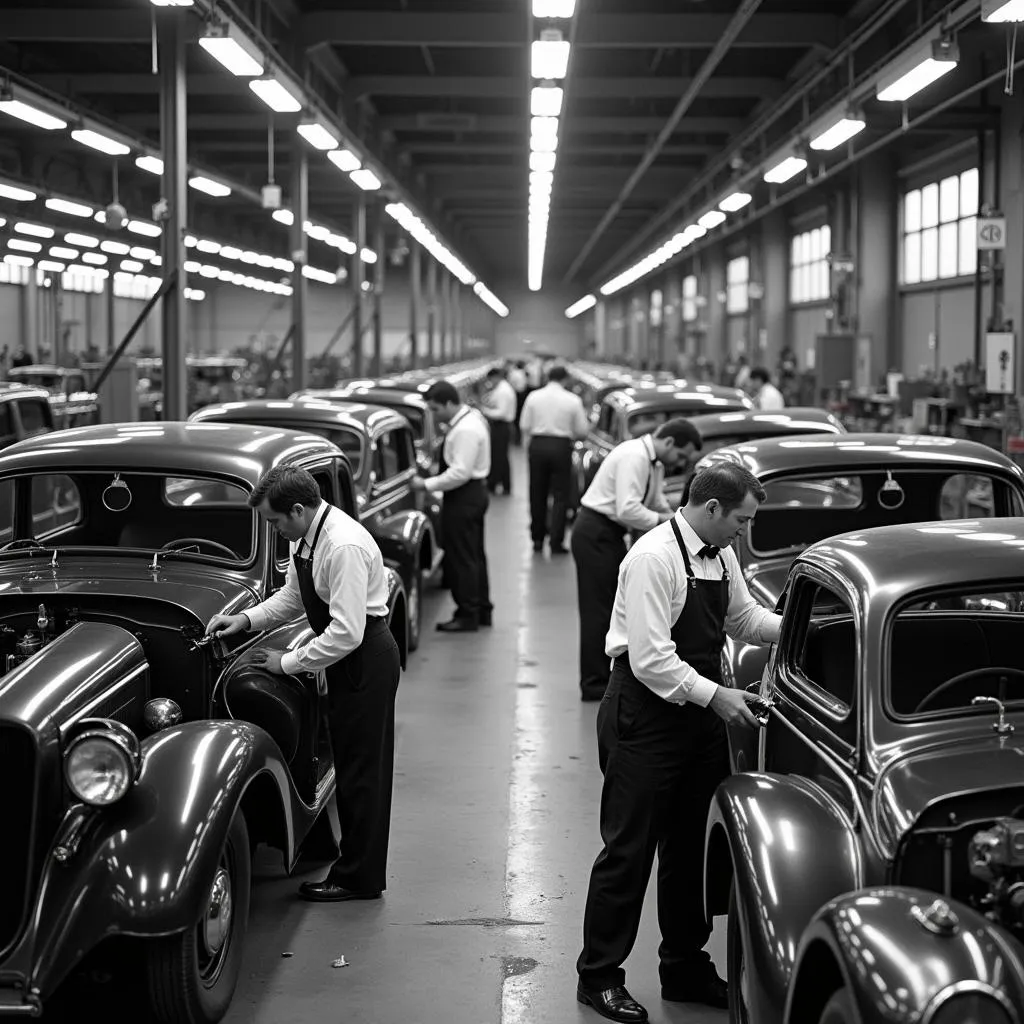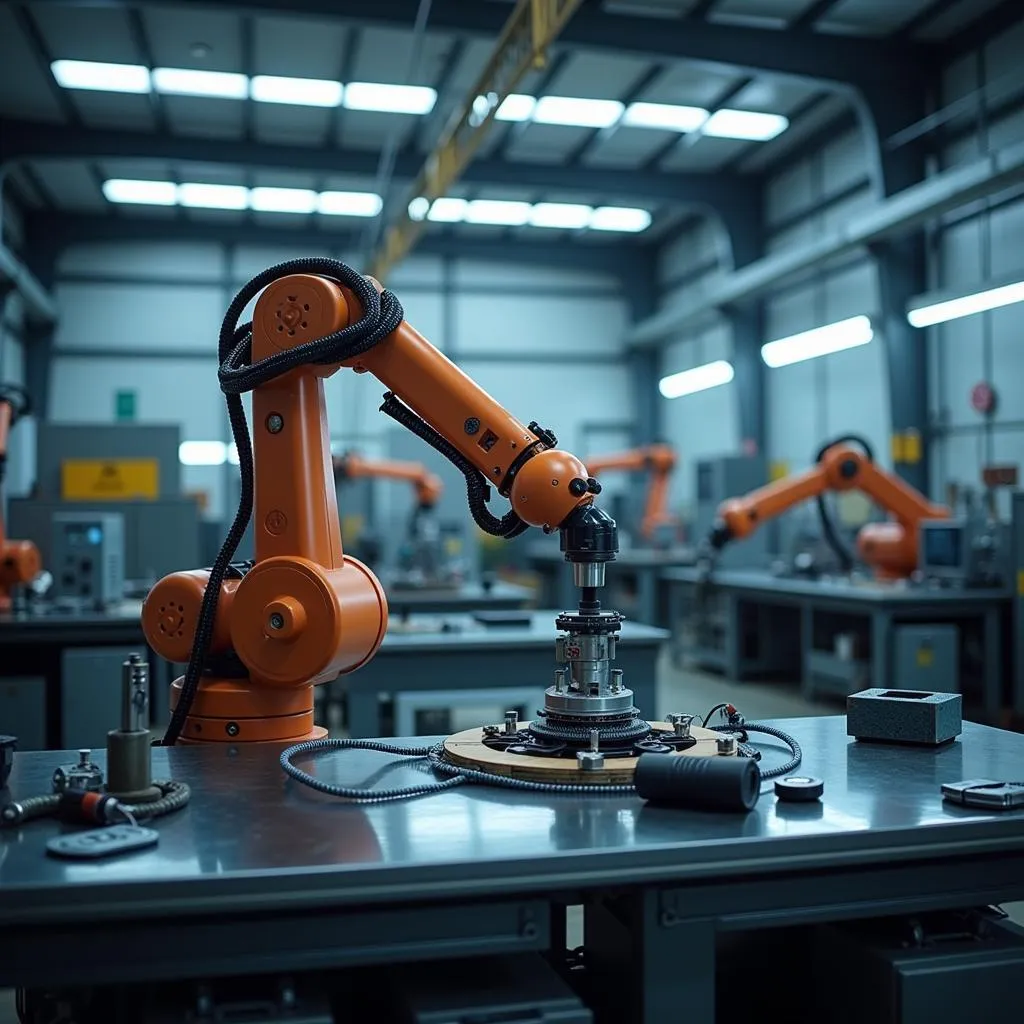The term “industrial society” often evokes images of smokestacks, bustling factories, and a world dominated by mass production and consumption. While this picture may capture a certain historical period, it fails to encompass the complexity and evolving nature of industrial societies today and their potential trajectories in the future. This article delves into the core attributes of industrial societies, analyzing their past, present, and most importantly, their future in a world grappling with social, environmental, and technological transformations.
From Mechanization to Automation: Tracing the Evolution of Industrial Society
The industrial revolution, beginning in the late 18th century, marked a turning point in human history.  Industrial Revolution Factory The shift from agrarian economies to those characterized by mechanized production, powered by new energy sources like coal and steam, led to unprecedented economic growth, urbanization, and social change. This period also witnessed the rise of capitalism as the dominant economic system, shaping the relationship between labor, capital, and technology in profound ways.
Industrial Revolution Factory The shift from agrarian economies to those characterized by mechanized production, powered by new energy sources like coal and steam, led to unprecedented economic growth, urbanization, and social change. This period also witnessed the rise of capitalism as the dominant economic system, shaping the relationship between labor, capital, and technology in profound ways.
The 20th century saw further evolution with the advent of mass production techniques, epitomized by the assembly line.  Assembly Line Production This era led to increased efficiency and the rise of consumer culture, but also highlighted issues of worker alienation and environmental degradation.
Assembly Line Production This era led to increased efficiency and the rise of consumer culture, but also highlighted issues of worker alienation and environmental degradation.
Today, we stand at the cusp of a new industrial era, driven by digital technologies, artificial intelligence, and automation.  Robotic Arm in Factory This Fourth Industrial Revolution, as it’s often called, presents both challenges and opportunities for the future of industrial societies.
Robotic Arm in Factory This Fourth Industrial Revolution, as it’s often called, presents both challenges and opportunities for the future of industrial societies.
The Challenges of the 21st Century: Navigating a Complex Landscape
Industrial societies in the 21st century face a convergence of challenges:
- Economic Inequality: The benefits of technological advancement are not evenly distributed, leading to widening income gaps and social unrest.
- Environmental Degradation: The pursuit of economic growth often comes at the cost of environmental sustainability, leading to climate change, pollution, and resource depletion.
- Technological Unemployment: Automation threatens to displace workers in various sectors, posing challenges for employment and social safety nets.
- Social Fragmentation: Increased globalization and rapid technological change can lead to social fragmentation, erosion of community, and political polarization.
“The future of industrial societies hinges on our ability to address these challenges with innovative solutions that prioritize both economic prosperity and social well-being,” notes Dr. Emily Carter, Professor of Sociology at the University of California, Berkeley.
Reimagining the Future: Towards a Sustainable and Equitable Industrial Society
Despite the challenges, there is hope. The same forces driving these challenges also hold the potential for positive change:
- Sustainable Technologies: Renewable energy, circular economy models, and green manufacturing practices offer pathways towards environmentally sustainable industrial development.
- Inclusive Growth: Policies focused on education, skills development, and equitable distribution of wealth can ensure that the benefits of economic growth reach all members of society.
- The Future of Work: Embracing lifelong learning, fostering entrepreneurship, and rethinking social safety nets can help navigate the changing landscape of work in the age of automation.
- Global Cooperation: Addressing global challenges like climate change requires international cooperation and a shared commitment to building a more sustainable and equitable future.
Conclusion: Shaping the Future We Want
The future of industrial societies is not predetermined. It is a future we actively shape through our choices and actions. By embracing innovation, prioritizing sustainability, and fostering social inclusion, we can steer industrial societies towards a future that benefits all. The journey ahead requires collaboration, creativity, and a shared commitment to creating a world where economic progress goes hand in hand with social justice and environmental responsibility.
FAQ
1. What defines an industrial society?
An industrial society is characterized by the use of machinery and technology for mass production, leading to a shift from agrarian economies to those centered around industrial manufacturing.
2. What are the key challenges facing industrial societies today?
Industrial societies grapple with issues like economic inequality, environmental degradation, technological unemployment, and social fragmentation.
3. How can we create a more sustainable and equitable industrial society?
By investing in sustainable technologies, promoting inclusive economic growth, rethinking the future of work, and fostering global cooperation, we can build a more just and sustainable future.
4. What is the role of technology in shaping the future of industrial societies?
Technology plays a dual role, presenting both challenges and opportunities. While automation can lead to job displacement, it also enables the development of sustainable solutions and new forms of work.
5. What can individuals do to contribute to a better future for industrial societies?
Individuals can make conscious consumer choices, support businesses committed to sustainability and social responsibility, engage in political activism, and advocate for policies that promote a more just and sustainable future.
Need further assistance? Contact us at Phone Number: 02043854663, Email: [email protected] or visit us at: Zone 34, Bac Giang, 260000, Vietnam. We are available 24/7 to assist you.